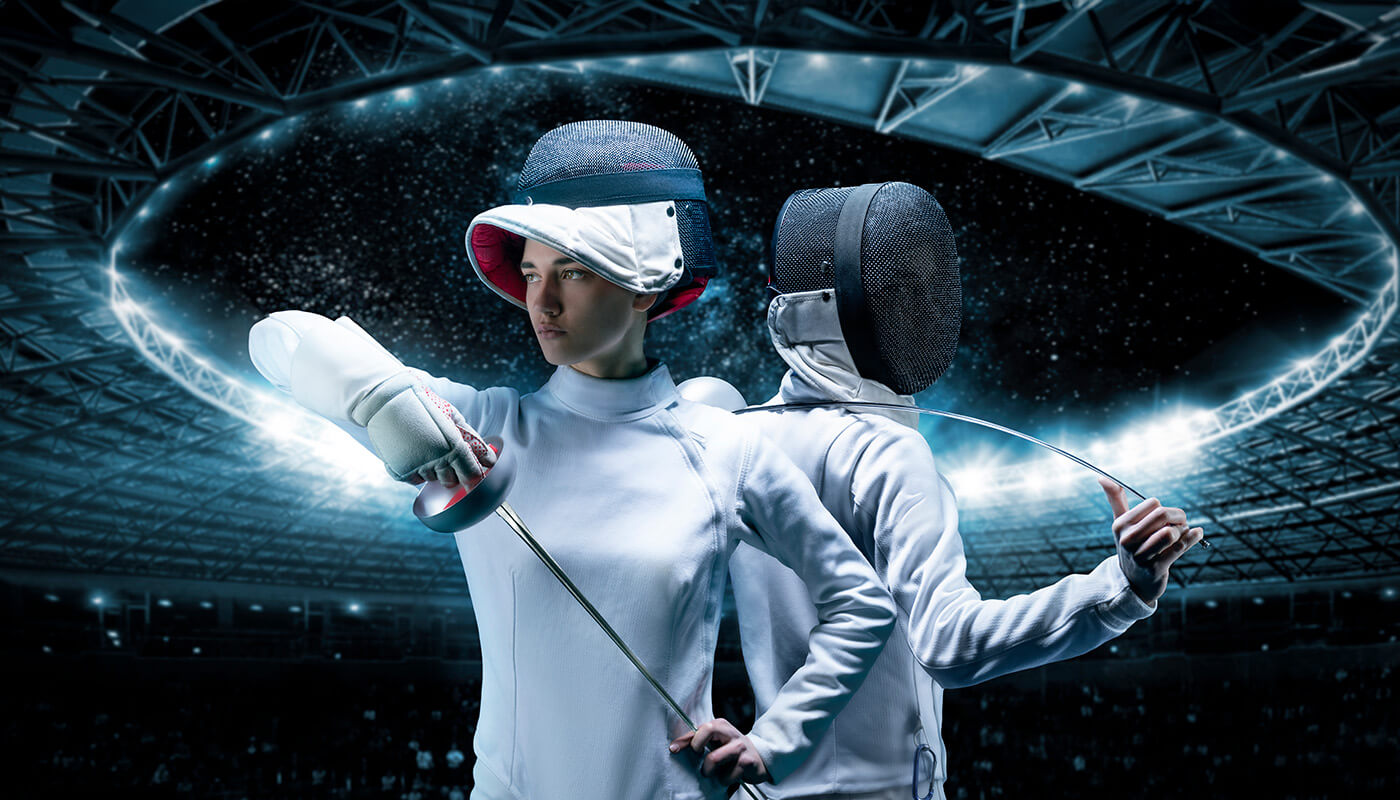
IP Games: trademark disputes, patent challenges and anti-piracy efforts
In the game of Intellectual Property (IP), not all contenders play fair. Tricks, cheats and underhand tactics could be anywhere, requiring an eagle eye and a hard nose to tackle. Yet, it often takes more than an instant replay to determine who is truly at fault.
We explore what happens when IP players call foul in this month's news roundup, looking at a claim of Olympic trademark infringement, an attempt to reduce the effect of patents on the pharmaceutical market and the music industry's assault on piracy.
Prime time drama at Paris 2024
The Olympic Games Paris 2024 are underway, but as an invaluable opportunity for brands to associate their goods and services with national teams, individual competitors and the organization itself, the IP competition started long before the opening ceremony. With these highly coveted advertising spots being few and strongly contested, the various Olympic Committees are especially vigilant of so-called "ambush marketing."
This tactic typically involves positioning a brand adjacent to a prominent event without being a sponsor or official partner, always with the goal of monetary gain through enhanced sales. Alongside laws against unfair competition, trademark rules are pivotal in counteracting this unsporting commercial behavior.
In this context, the United States Olympic & Paralympic Committee (USOPC) has filed a trademark infringement suit against Prime Hydration, a sports drinks company founded by YouTube-personality-turned-celebrity-wrestler Logan Paul. To coincide with the summer Games, Prime Hydration released a drink variety that prominently discloses a partnership with basketballer Kevin Durant on its packaging. In and of itself, an endorsement by an athlete does not violate a third party's IP rights; however, in promoting the affiliation and, by extension, the drink, Prime Hydration makes alleged use of USOPC registered trademarks.
The USOPC claims that its protected marks "OLYMPIC," "OLYMPIAN," "TEAM USA," and "GOING FOR GOLD" are infringed by the sports drink in what would then be an archetypical case of ambush marketing. The complaint filed at the District Court for the District of Colorado states that a cease-and-desist notice was ignored, hence the USOPC's call for treble damages for willful infringement and additional punitive damages for acting with "malicious intent."

Prime Hydration drinks are not to be confused with their sister products from Prime Energy, which have drawn negative attention due to their high caffeine content of 200 milligrams per 12-ounce (340 ml) can. An 8-ounce cup of coffee has around 95 milligrams.
As per the filing: "The USOPC has suffered additional damages as Prime Hydration is impinging upon the rights the USOPC has given to significant sponsors of the Olympics, resulting in damages of millions of dollars as to be determined at trial."
This serves to highlight how licensees are also detrimentally affected by ambush marketing tactics, namely, that unscrupulous actors may dilute the trademark rights and branding elements they have paid handsomely to use.
Nevertheless, Logan Paul is no stranger to controversy, incensing many around the world by posting footage of a dead body to YouTube in December 2017. Recorded in Japan's Aokigahara forest, the exploitation of the apparent suicide victim drew widespread ire and an apology. More recently, a failed cryptocurrency and non-fungible token (NFT) venture from 2021 left fans out of pocket.
If this run-in with IP law ends in a slam dunk for the USOPC, Prime Hydration could find itself all dried up.
Cutting a swathe through drug patent thickets
The high price of medication in the United States has been a recurring cause for concern and scrutiny in recent times. One reason for this financial burden on patients is the tendency for new medications to be covered by a dense array of patents, delaying the market entry of competing products.
This situation of imbricated IP rights, often laid down successively over a period of years, is commonly referred to as a "patent thicket" as it can form a near-impenetrable obstacle to generic manufacturers. Given the high degree of technicality involved with pharmaceutical patents, it is possible for "low-quality or even duplicative" applications to result in grants that extend a drug's market exclusivity beyond what would otherwise be permissible.
A bill designed to curb the ability of pharmaceutical companies to assert large numbers of patents during infringement litigation passed the U.S. Senate on July 11, 2024. The Affordable Prescriptions for Patients Act of 2023 was unanimously accepted by senators and has moved to the House of Representatives for consideration before becoming law.
The Act specifically targets biologic drugs and their non-branded counterparts. These medications derive their active pharmaceutical ingredients from biological sources, that is, from the cells of living organisms: animals, plants, fungi, bacteria, etc. Once a patented "reference medicine" has received approval from the Food and Drug Administration (FDA), functionally identical generic versions called "biosimilars" are commonly developed by other companies.

A 2022 study from the Sturm College of Law indicated that the average number of patents brought against biosimilars in the United States is nine times that in Canada and 12 times that in the United Kingdom.
Problems arise when the owner of a reference medicine obstructs the sale of a biosimilar by claiming the impingement of their IP rights – generally involving an inordinate number of patents. Hence, the Act seeks to limit this proclivity by capping the total biologic patents that may be asserted at 20, with no more than 10 of those being issued later than 12 years after the reference medicine was first licensed by the FDA.
Though potentially beneficial for patients in the long run, the legislation passed by the U.S. Senate is a significantly watered-down version of what Senators John Cornyn and Richard Blumenthal initially introduced last year. Originally intending to crack down on the practice of "product hopping," all references to this prohibition were removed in subsequent amendments.
Simply put, product hopping occurs when a drug manufacturer pulls a reference drug from the market, requests that approval be withdrawn or begins selling a substantively similar or identical follow-on product. By essentially resetting the approval process, all of these actions can negatively impact the market presence of biosimilars and, consequently, the availability of affordable drugs.
While this legislative move is welcome progress, much more still needs to be done to disentangle patents from artificially high treatment costs in a way that supports continued innovation.
Pulling the plug on piracy profits
In June, we reported that industry-leading music labels were suing two artificial intelligence (AI) companies in the United States for what they described as "willful copyright infringement on an almost unimaginable scale." Now, less than a month later, a separate copyright lawsuit has been filed by an equally hefty collection of plaintiffs, again counting Sony Music, Universal Music Group and Warner Records among their ranks.
Rather than a pair of AI newcomers, the defendant in this case is Verizon Communications, the world's second-largest telecommunications company by revenue. The suit, filed on July 12 in the District Court for the Southern District of New York, argues that Verizon engaged in "contributory and vicarious copyright infringement" when it "knowingly contributed to, and reaped substantial profits from" the pirating actions of many of its subscribers.

Alongside public and private torrents, stream-ripping is one of the most common methods of pirating music today. Specialist sites allow users to download media directly from hosting platforms such as YouTube.
The music labels claim to have collectively sent almost 350,000 infringement notices to Verizon for illegal file-sharing via peer-to-peer (P2P) networks such as BitTorrent and uTorrent. It is argued that by ignoring these plenteous communications, Verizon facilitated the infringing behavior of the identified users and benefited financially from providing them with continued internet service.
Under 17 U.S. Code § 504, the plaintiffs seek up to $150,000 USD per infringed work or an alternative amount, consisting of the actual damages and Verizon's associated profits, to be determined at trial. Considering that a list of 17,335 tracks was included with the filing, one theoretical total for statutory damages exceeds $2.6 billion USD.
Whether this figure would come to pass is another matter. Earlier this year, a very similar dispute saw an award of $1 billion USD in damages thrown out by the 4th U.S. Circuit Court of Appeals. In Sony Music Entertainment vs. Cox Communications, Incorporated, a group of music labels convinced a jury of both the internet service provider's willful contributory infringement and its vicarious liability on the part of infringing users. However, Cox was able to show on appeal that it did not directly profit from the piracy, and thus, the latter finding was reversed on February 20. A new trial will determine the actual amount to be paid.
In ruling on the Cox case, the judges of the Court of Appeals succinctly captured Verizon's current dilemma: "Federal law protects internet service providers from monetary liability for copyright infringement committed by users of their networks, but only if those service providers reasonably implement a policy to terminate repeat infringers in appropriate circumstances." Thus, if Verizon can demonstrate it adopted and implemented reasonable measures to curb the illegal acts, it may qualify for "safe harbor" protections under the Digital Millennium Copyright Act (DMCA).
At any rate, turning a blind eye – or ear – to online piracy is an invitation for a serious legal headache.
Filed in

Dennemeyer partners with Mistral AI and NTT DATA to deliver a secure, adaptable AI foundation for the digital future of IP services.



